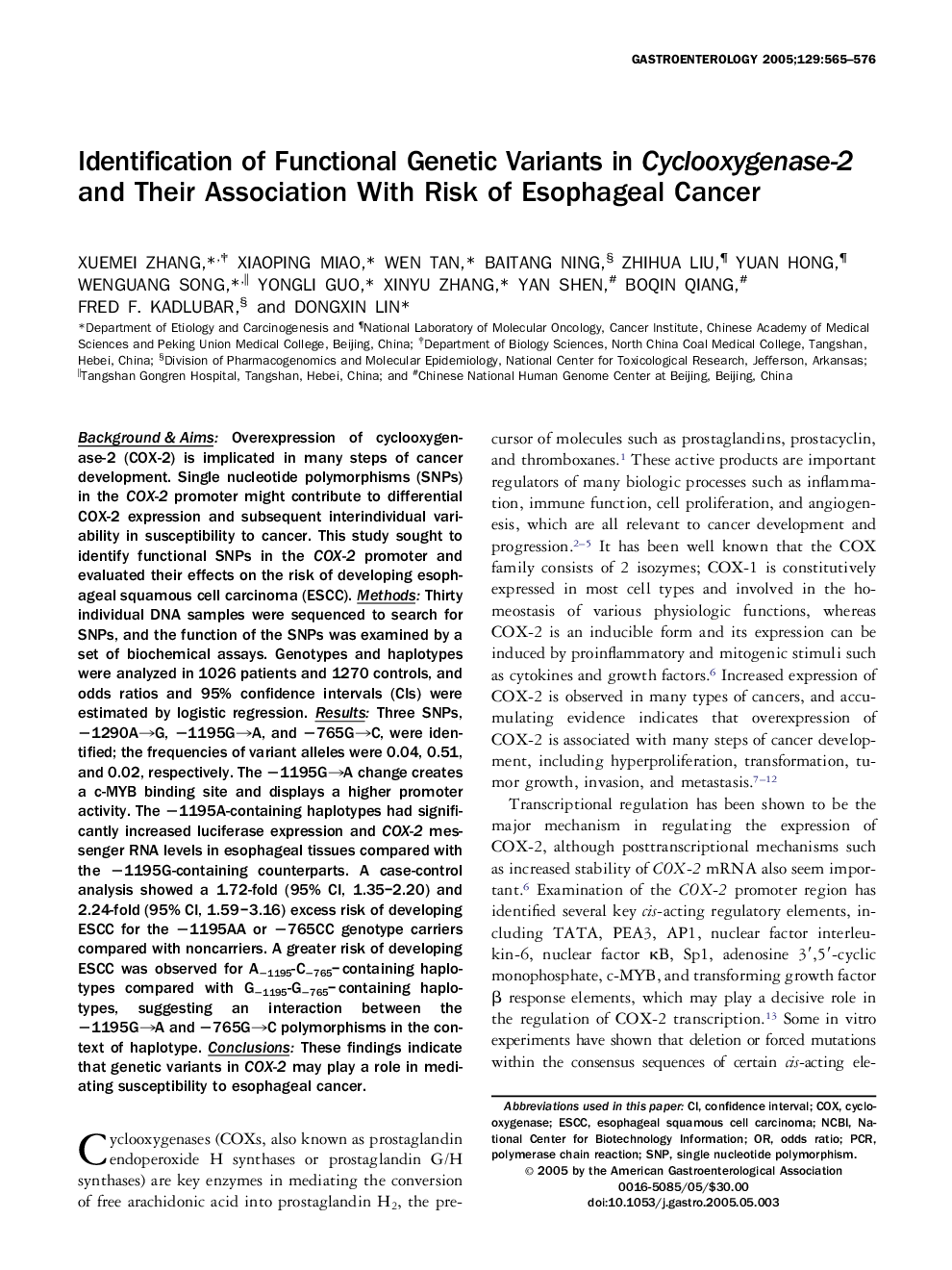| Article ID | Journal | Published Year | Pages | File Type |
|---|---|---|---|---|
| 9244144 | Gastroenterology | 2005 | 12 Pages |
Abstract
Background & Aims: Overexpression of cyclooxygenase-2 (COX-2) is implicated in many steps of cancer development. Single nucleotide polymorphisms (SNPs) in the COX-2 promoter might contribute to differential COX-2 expression and subsequent interindividual variability in susceptibility to cancer. This study sought to identify functional SNPs in the COX-2 promoter and evaluated their effects on the risk of developing esophageal squamous cell carcinoma (ESCC). Methods: Thirty individual DNA samples were sequenced to search for SNPs, and the function of the SNPs was examined by a set of biochemical assays. Genotypes and haplotypes were analyzed in 1026 patients and 1270 controls, and odds ratios and 95% confidence intervals (CIs) were estimated by logistic regression. Results: Three SNPs, â1290AâG, â1195GâA, and â765GâC, were identified; the frequencies of variant alleles were 0.04, 0.51, and 0.02, respectively. The â1195GâA change creates a c-MYB binding site and displays a higher promoter activity. The â1195A-containing haplotypes had significantly increased luciferase expression and COX-2 messenger RNA levels in esophageal tissues compared with the â1195G-containing counterparts. A case-control analysis showed a 1.72-fold (95% CI, 1.35-2.20) and 2.24-fold (95% CI, 1.59-3.16) excess risk of developing ESCC for the â1195AA or â765CC genotype carriers compared with noncarriers. A greater risk of developing ESCC was observed for Aâ1195-Câ765-containing haplotypes compared with Gâ1195-Gâ765-containing haplotypes, suggesting an interaction between the â1195GâA and â765GâC polymorphisms in the context of haplotype. Conclusions: These findings indicate that genetic variants in COX-2 may play a role in mediating susceptibility to esophageal cancer.
Keywords
Related Topics
Health Sciences
Medicine and Dentistry
Gastroenterology
Authors
Xuemei Zhang, Xiaoping Miao, Wen Tan, Baitang Ning, Zhihua Liu, Yuan Hong, Wenguang Song, Yongli Guo, Xinyu Zhang, Yan Shen, Boqin Qiang, Fred F. Kadlubar, Dongxin Lin,
